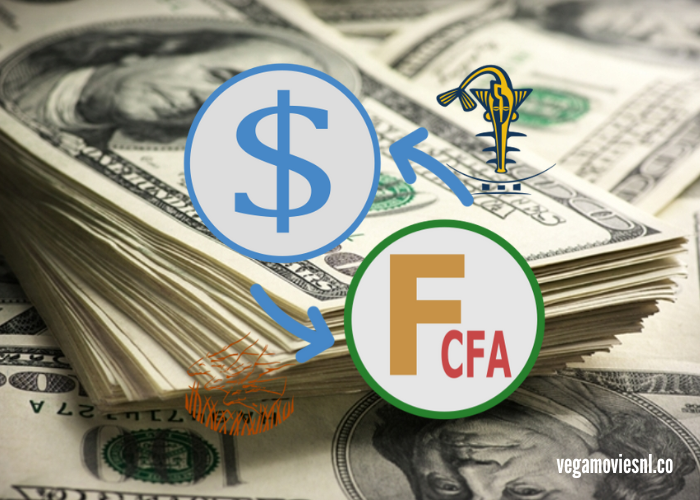Currency exchange is a vital aspect of global economics, affecting travelers, investors, and businesses alike. One intriguing exchange that often captures attention is the conversion of 1 Dollar en CFA (Central African CFA Franc).
In this comprehensive SEO-friendly article, we’ll dive deep into the dynamics of this currency conversion. We will explore the history of the CFA Franc, the current exchange rates, its significance in international trade, and practical tips for individuals and businesses dealing with this conversion.
The Origins of the CFA Franc
Colonial Roots
The Central African CFA Franc has a unique history tied to French colonial influence in Africa. We’ll explore its colonial origins, the adoption of the currency, and its evolution over the years.
The CFA Franc Zone
A Shared Currency
The CFA Franc is not limited to a single country but is used in a group of African nations. We’ll delve into the concept of the CFA Franc Zone, its members, and how they share a common currency despite their diverse economic landscapes.
The Two Variants: XAF and XOF
West and Central African CFA Francs
While both variants are called CFA Franc, they serve different regions and have distinct central banks. This chapter will distinguish between the West African CFA Franc (XOF) and the Central African CFA Franc (XAF).
The Pegged Exchange Rate System
Fixed to the Euro
One of the unique features of the CFA Franc is its fixed exchange rate with the Euro. We’ll explore the implications of this pegged system, its advantages, and challenges.
Exchange Rate Dynamics
1 Dollar en CFA – Today’s Rates
Understanding the current exchange rate is crucial for anyone involved in currency conversion. We’ll provide up-to-date information on the exchange rate for converting 1 US Dollar to Central African CFA Franc.
Factors Influencing Exchange Rates
Economic Forces at Play
Exchange rates are influenced by various economic factors, including interest rates, inflation, and government policies. We’ll discuss how these factors affect the value of the CFA Franc.
The Role of Central Banks
Maintaining Stability
Central banks in the CFA Franc Zone play a pivotal role in ensuring the stability of their respective currencies. We’ll examine the functions and responsibilities of these institutions.
International Trade and Investment
CFA Franc in Global Transactions
The CFA Franc is not limited to the CFA Franc Zone; it’s used in international trade and investment. This chapter explores its role in cross-border commerce and foreign investment.
Currency Exchange Services
Facilitating Transactions
For individuals and businesses, accessing currency exchange services is crucial. We’ll provide insights into how to find reliable and cost-effective exchange services for 1 Dollar en CFA conversions.
Traveling with CFA Francs
Currency Considerations for Travelers
Travelers to the CFA Franc Zone need to be prepared for currency conversion. We’ll offer practical advice on handling CFA Francs during your journey.
Investing in the CFA Franc Zone
Opportunities and Risks
Investors looking to engage with CFA Franc-based assets need a comprehensive understanding of the region’s economic landscape. We’ll explore investment opportunities, risks, and strategies.
Managing Currency Risk
Mitigating Exchange Rate Fluctuations
Businesses operating in the CFA Franc Zone need to manage currency risk effectively. This chapter provides insights into strategies for mitigating the impact of exchange rate fluctuations.
The Future of the CFA Franc
Adaptation and Change
The CFA Franc has faced criticism and calls for reform. We’ll discuss the potential future developments in the currency, including discussions surrounding its continued peg to the Euro.
Cryptocurrencies and the CFA Franc
The rise of cryptocurrencies has disrupted traditional currency exchange systems. In this chapter, we’ll explore the intersection of cryptocurrencies like Bitcoin and the CFA Franc. How are digital currencies impacting currency conversion and cross-border transactions in the CFA Franc Zone? We’ll also discuss the regulatory challenges and opportunities posed by the digital currency revolution.
Cultural and Economic Significance of the CFA Franc
Beyond its economic role, the CFA Franc holds cultural significance in the countries that use it. We’ll delve into the cultural aspects of this currency, including its presence in everyday life, art, and literature. Additionally, we’ll explore how economic policies linked to the CFA Franc impact the daily lives of citizens in the member countries.
The Debate Over Currency Reform
The CFA Franc has been a subject of debate, with calls for currency reform gaining momentum. This chapter provides an in-depth look at the arguments for and against currency reform in the CFA Franc Zone. What are the potential benefits and challenges of such reforms, and how might they impact the region’s economies?
Banking and Financial Infrastructure
The CFA Franc’s stability relies on robust banking and financial infrastructure. We’ll examine the banking systems in the CFA Franc Zone, their roles in currency exchange, and the importance of financial institutions in supporting economic growth.
Navigating Exchange Rate Volatility
Exchange rate volatility can pose challenges for businesses and individuals. In this chapter, we’ll discuss strategies for navigating exchange rate fluctuations when dealing with 1 Dollar en CFA conversions. From hedging techniques to risk management, understanding how to adapt to currency market changes is crucial.
Conclusion
In conclusion, understanding the dynamics of converting 1 Dollar en CFA is not just a matter of economics; it’s a key aspect of global financial literacy. Whether you’re a traveler, investor, or business owner, grasping the intricacies of this currency conversion empowers you to make informed decisions in a complex financial world.
As the CFA Franc continues to evolve and adapt to changing economic landscapes, staying informed about its history, dynamics, and future possibilities is essential for those engaged in international commerce and finance.
